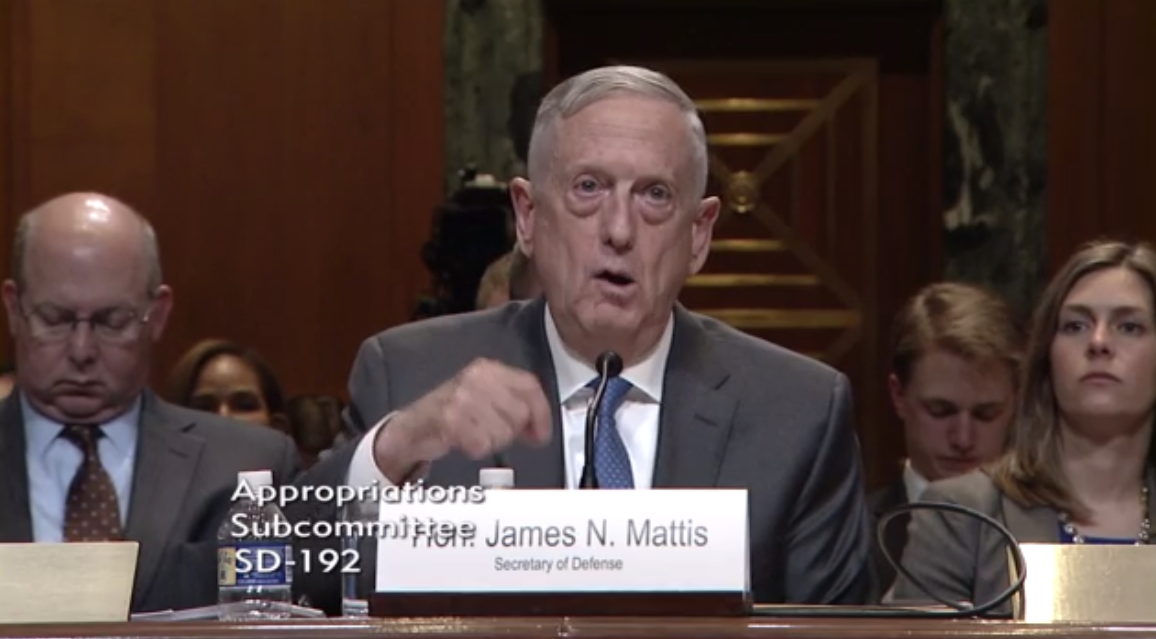
Defense Secretary Jim Mattis testifies Wednesday at a Senate Appropriations Defense subcommittee hearing on Pentagon force structure. Screenshot photo.
Defense Secretary Jim Mattis on Wednesday sought to persuade lawmakers there is a good story to tell alongside the steady stream of dramatic attacks rattling Afghanistan, saying that high-profile Taliban bombings show the group is losing influence.
“Progress and violence coexist in Afghanistan,” Mattis told the Senate Appropriations Defense Subcommittee. “And in that regard, the Taliban recognizes they cannot win at the ballot box, so they went to bombs. We anticipated it. We’ve stopped a large number of these attacks, but you’ll notice the attacks right now are addressed to soft targets.”
Mattis claimed an increase in US advising to Afghan units has helped stop many attacks, because those Afghan units that received US and NATO help have not been defeated in combat with the Taliban, while the ones who have not received advising have. The new US strategy, he noted, is to increase the amount of US help.
“As we find those units and we start having more NATO advisers with them—mostly American but other NATO countries as well—then we will end up with more capable units in the field,” Mattis said.
NATO and other nations have increased their commitment, with 41 total allies now providing help in the country. For example, Germany is raising its commitment by 35 percent and India has recently committed to more development funding, Mattis said.
Earlier this month, the Pentagon’s Special Inspector General for Afghanistan Reconstruction released a report stating that the Afghan military is operating below its authorized end strength and much of its fledgling air force fleet is unavailable. The same report states that insurgent control of the country has increased to 12 percent of the population, up from nine percent in August 2016. US aircraft have dramatically increased their strikes inside the country, with the monthly total of bombs dropped in March surpassing that of operations against ISIS in Iraq and Syria.
Mattis told lawmakers this fight, which he first deployed to as a Marine commander in November 2001, will “take time.”
“I think, too, as you look at what we stand for in this world, the idea that attacks on registration places for elections, that’s not something that should drive us out of this fight,” he said.
